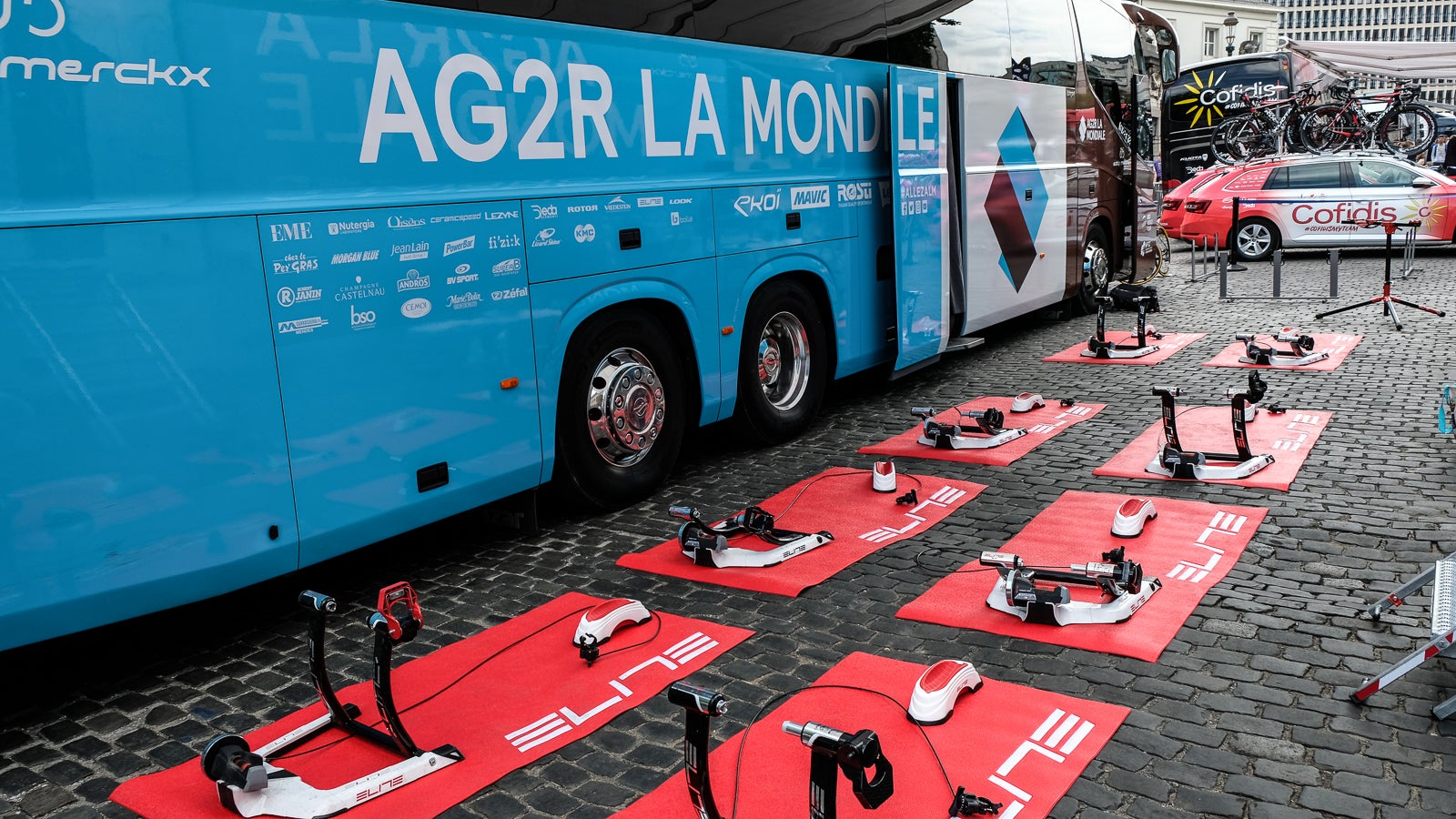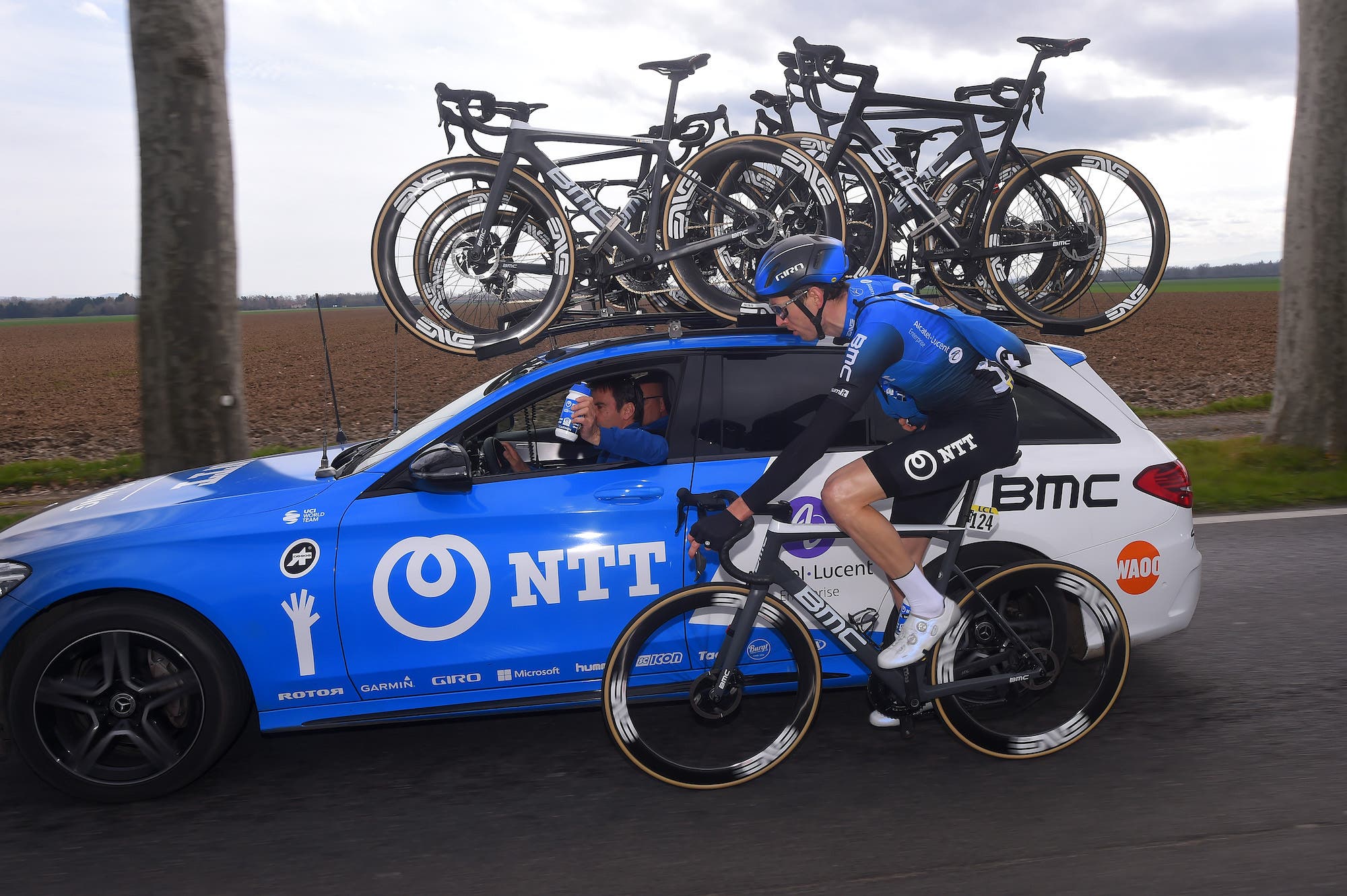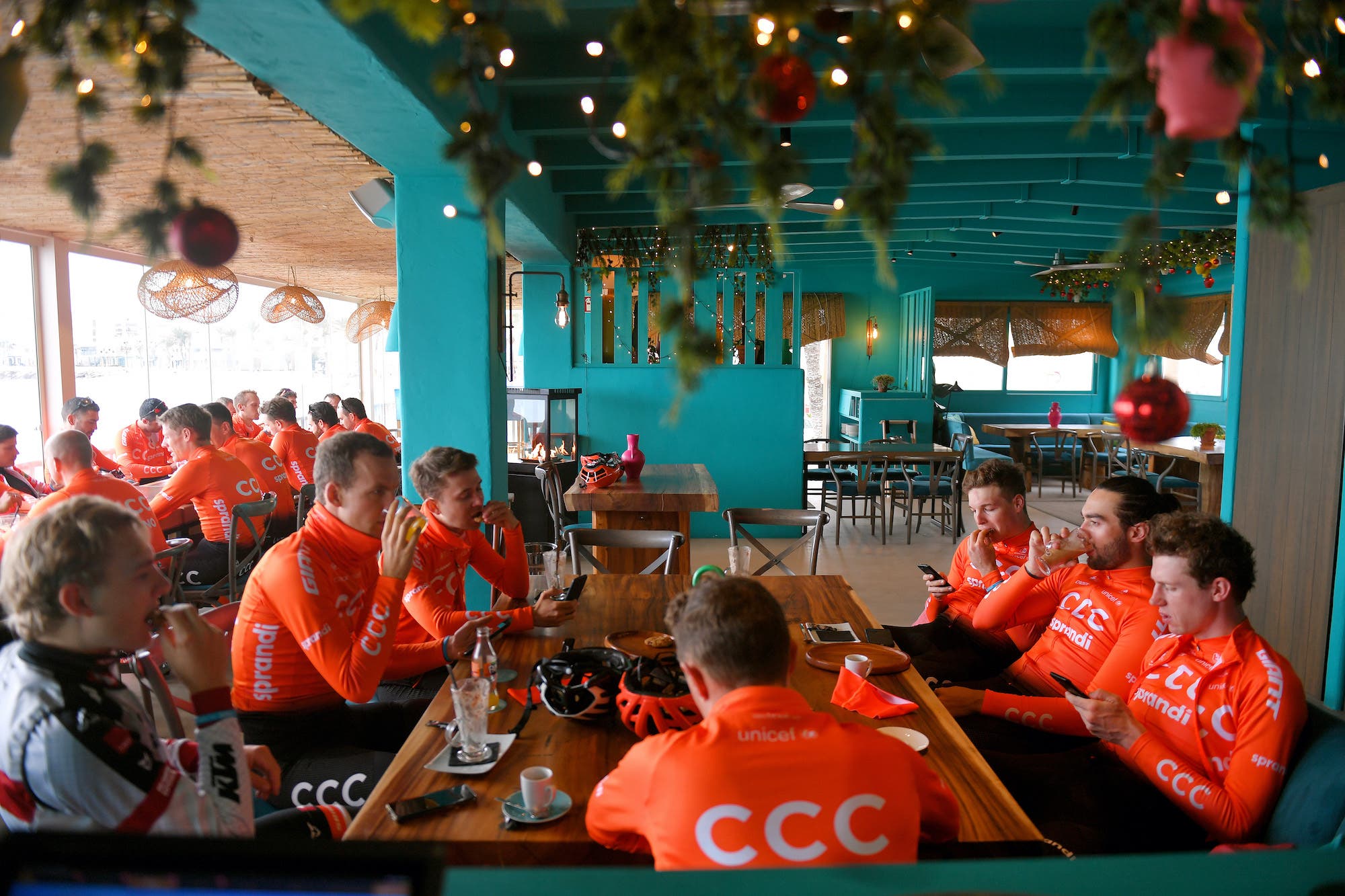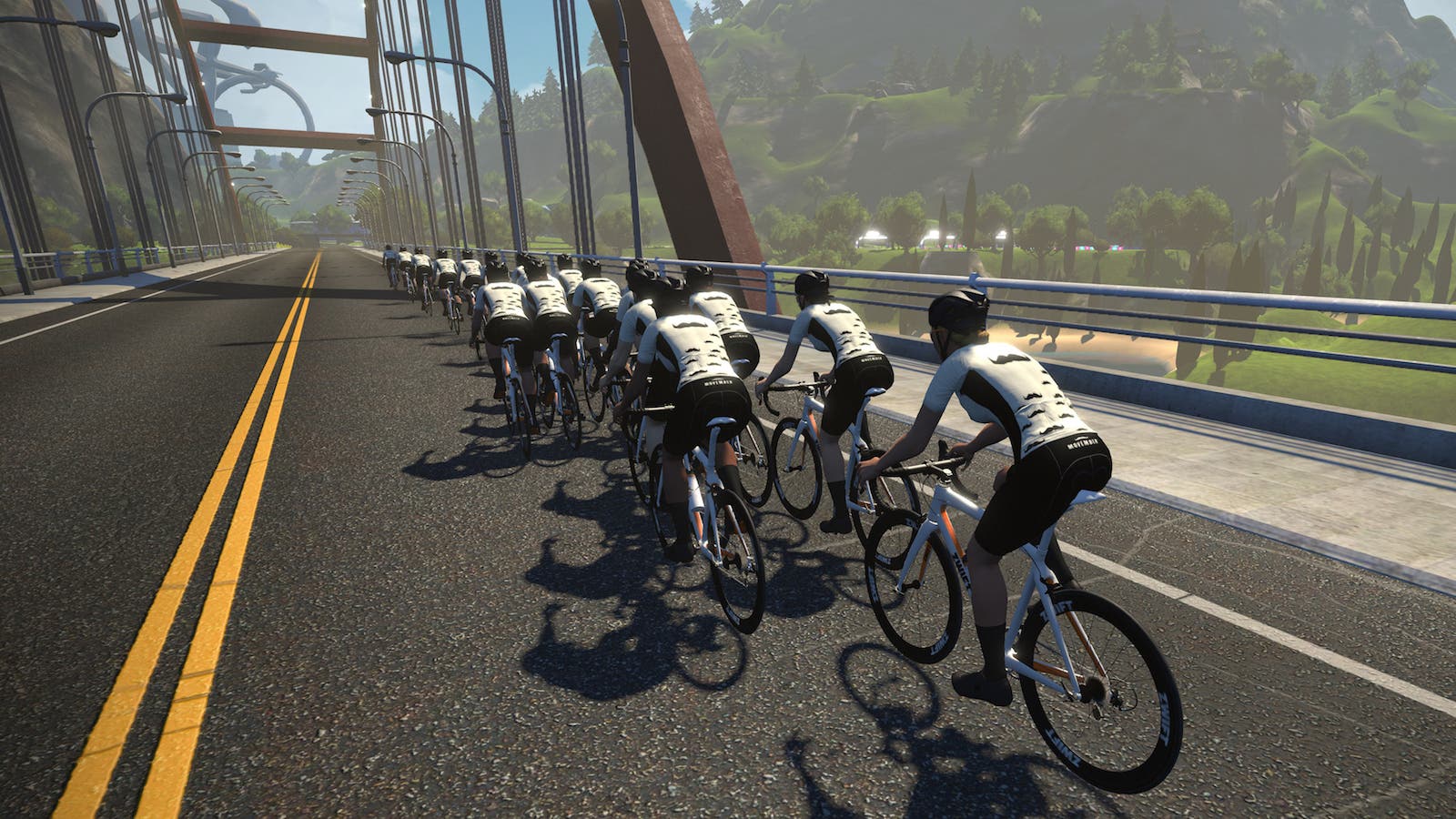WorldTour peloton left training on instinct amid uncertainty over race schedules

Photo: Dan Cavallari | VeloNews.com
To train or rest? That’s the question a lot of the WorldTour peloton is now faced with as they ponder when their next race will be.
The coronavirus pandemic has not only seen race organizers’ carefully-laid plans go up in smoke, but also the meticulously mapped out race schedules and training plans of the riders.
Day by day, racers, team bosses and sponsors, and governing bodies wait with bated breath to hear news of which 2020 event is the next t
o have become victim of the coronavirus fallout, with Tuesday seeing confirmation of the postponement of the 2020 Olympic Games. Meanwhile riders are trying to balance keeping fit with keeping fresh – and maintaining the hunger to race.
Uncertainties over the season’s race schedule directly translates to riders’ previously carefully-mapped training plans. Riders are now waiting out lockdowns, pondering whether to train hard now to build form for summer races which could be canceled at any moment, or back off and rest, hoping to see clarity in the season’s calendar in coming weeks.
Many teams have suggested to riders to keep the engine on a very low rev as they wait for confirmation of when the next race will be.
“We’re keeping riders in what we’ve termed a ‘holding pattern,’” Ciaran O’Grady, Performance Coach at NTT Pro Cycling told VeloNews. “We just want them to be not pushing anything forward too much until we have a bit more certainty about where the first date of the races is going to be. We want to give them some downtime while we can and save their legs for later.”
AG2R-La Mondiale and CCC Team are among many other WorldTour squads advising their riders to throttle back, with American Will Barta (CCC Team) telling VeloNews that he had been advised two to take three weeks of downtime “in the hope we find out when our next race will be soon.”

And while a team can advise training plans, riders make their own decisions. After years of training and learning what their body needs, they’re often the ones that know what works best for their engines and their mind.
Having started to build momentum into their training patterns ahead of the spring classics season or early-season stage races, many are continuing to push through with crossed fingers for summer. At present, the first races still standing in the calendar are June’s Criterium du Dauphine and Tour de Suisse, and soon after that, the Tour de France.
“My thoughts are, it’s better to train hard right now, and then take a break later,” Larry Warbasse (AG2R-La Mondiale) said last week. “That’s what you’d be doing if the season was continuing on like normal. So, you know, if someone’s going for the Tour de France, they’re not gonna be taking a week off right now.”
“I think it’s better to take a reverse approach and keep training hard,” the American said. “And then once we have more information then you can adjust and take a rest. So, if you’re picked for the Tour, rest and get fresh near the time.”
Warbasse is one of many riders holding out hope for the resumption of racing in summer. Many will have been given a small glimmer of hope at the news Monday that Tour organizers are looking at a ‘behind closed doors’ format to allow the race to go ahead, however, Tuesday’s confirmation of the Olympic postponement casts a dark shadow over the cycling season.
“The target that I think we’re all hoping for is, you know, June – July to start,” Barta said. “But I think also it’s it is quite hard mentally to train. There’s so much going on, it’s hard to focus on anything right now.”
If the Tour does go ahead as planned in July, nobody knows what state the riders will be in. Richie Porte and Romain Bardet have both recently raised alarm bells over their concern for riders’ form come June having spent the past three months indoors on turbo trainers. However, some are trying to take positives from the situation.
“I’m seeing there’s an opportunity to do the perfect build and to do everything right – the things that most of us never have a chance to do because we’re always racing so much,” Warbasse said.“It’s maybe only like the big leaders in cycling really have the opportunity to do that sort of preparation. And I’ve found before that long periods on the trainer can work well for me — bad weather meant I was stuck inside at home in Michigan a few years ago and was flying afterward.”
Warbasse’s determination to iron out the kinks through a low period in racing is shared elsewhere. “We’re using this time to go back to the basics and look at things like making sure riders are doing their core work, stretching, the things that get missed out when a rider is full-on racing,” O’Grady said of his NTT riders.

The mental aspect of managing training – maintaining motivation and focussing on the task at hand – has become more strenuous as riders become increasingly fearful for their health, and their availability to see family. For a rider to fully commit to the day to day discipline and stresses of top-tier training, they need the world around them to be calm. A worldwide pandemic and global lockdown is as far from that as you can get.
“The coaches still care about what we’re doing, but I think they want us mentally to choose what we do,” Barta said last week. “No one has any idea what’s happening so you have to believe in what you’re doing. And for me, once I have it become a bit more certain what I’m doing, then I think it’s a lot easier to be motivated. As with everything right now, there’s no right answer. You have to make a decision and believe what you’re doing.”
Just as riders are left fearful of the health and futures of themselves and their loved ones — with Warbasse and Barta abandoning a European altitude camp this weekend due to just that — they are also left isolated from training partners.

Although riders are dispersed across the globe, teams and training buddies are keeping connected through social media platforms, Zwift, and Strava. NTT Pro Cycling has a group chat for its staffers and riders “that’s busier now than it ever has been,” said O’Grady. With differing states of lockdown through Europe — with restrictions of varying strictness through training hubs in France, Italy and Spain — riders are electronically uniting with their colleagues.
“We’ve got guys who are locked down in Spain and guys are messaging them in support or joining them on virtual rides,” said O’Grady. “And we’re doing a whole-team ride on Zwift including all the support staff, to generate banter.”
As well as using online training platform Zwift to maintain rider collectiveness, many teams are using the software as a tool to bring their riders to the public, with Mitchelton-Scott, Canyon-SRAM, EF Pro Cycling and Trek-Segafredo all hosting virtual events in the past week inviting the public to train with their team. High profile stars such as Annemiek van Vleuten, Vincenzo Nibali, and Lachlan Morton are among the many involved.
The next weeks will be an ultimate test of riders’ commitment to the sport. For many, maintaining any sort of discipline in following a set training pattern — whether that be building form or laying low — will be victory in itself as they struggle with a whole new set of fears and concerns.
When racing resumes, the peloton could be red hot or timidly bubbling. Let’s hope we find out which of those it will be soon.